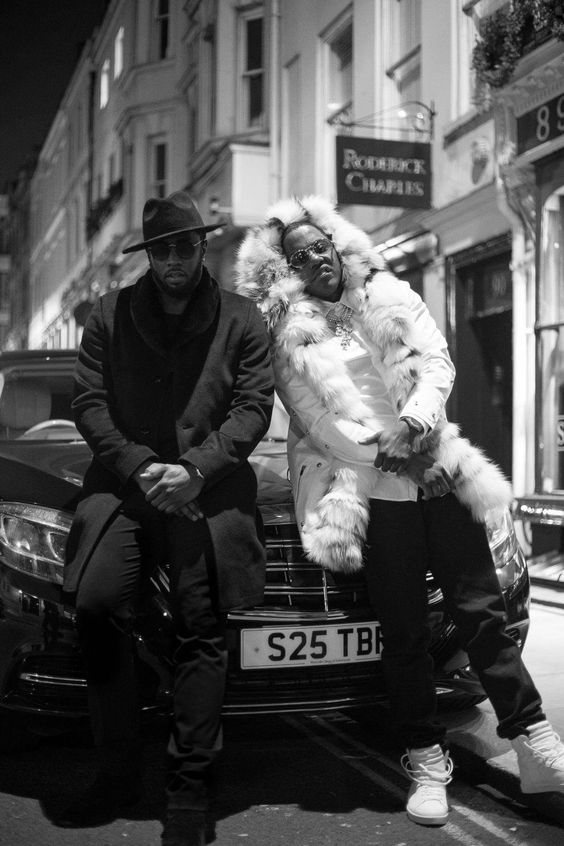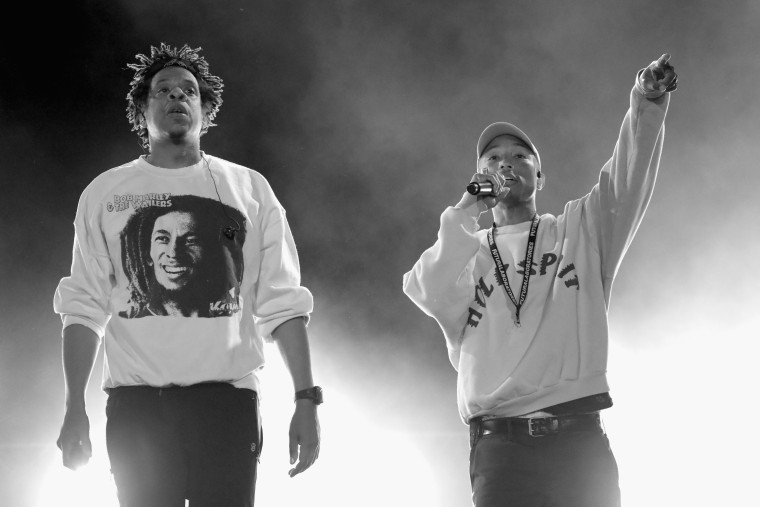On 17 April 2020, American rapper and former Bad Boy record label artist, Black Rob, passed away due to kidney failure and before his death, a GoFundMe had been created to help him pay for his medical bills. Earlier in the same month, Bad Boy Records founder, millionaire and once upon a time Black Rob’s boss, Diddy, tweeted an article he wrote to ‘corporate America’ titled, ‘If You Love Us, Pay Us’. This is not the first time an artist has suffered under the leadership and entrepreneurship of Diddy. Yes, artists have a responsibility of taking care of their own finances, however, this not an isolated incident but rather another example of how Black executives in the music and broader art industry will emulate the same treatment Black people have received from White executives and systemically put them in a long-term disadvantage by offering them allegedly exploitative contracts and keeping them tied onto bad deals for decades to come.
Diddy, Pharrell and JAY-Z have all in the past been accused of exploitative practices, such as former Bad Boy Records rapper Mase panning a lengthy caption on Instagram, addressed to Diddy, writing:
Your past business practices knowingly has continued purposely starved your artist and been extremely unfair to the very same artist that helped u obtain that Icon Award on the iconic Bad Boy label. For example, u still got my publishing from 24 years ago in which u gave me $20k
This came after Diddy gave a speech at the 2020 Grammy Awards calling out the lack of respect that Black artists have received from the organisation. A day prior to Mase’s post, on 30 January 2020, Kelis disclosed in a Guardian feature that The Neptunes, featuring Pharrell and Chad Hugo, “stole” her share of her first two albums and that she was “lied to and tricked” by the duo in order for them to keep the profits from her publishing solely for themselves. Other examples of such stories include rapper Sauce Money accusing JAY-Z and Diddy of halting his career by practicing “backdoor” politics and the founder of Cash Money Records, Birdman, being infamously known for allegedly unfairly ‘cashing out’ on his artists, particularly Lil’ Wayne, who settled a lawsuit against Cash Money in 2018. It seems as though some of the names that come up when you search ‘richest hip-hop artist’ have earned those titles by directly taking advantage of the naiveté and trust that other artists give them. What’s that one saying from that teen detective show in the early 2010s? “If one is an incident, two is a coincidence, three is a pattern, what is four?”

Gaslighting is described as a “form of abuse that causes someone to doubt their sanity or perceptions. It usually takes place in relationships and social interactions where there is a power imbalance”. That is what came to mind when I read Diddy’s letter to ‘corporate America’. Diddy seems to be (re)directing all of the criticism he has received about his own behaviour to another historically exploitative group and is relying on his own identity as a Black artist to back him. By using terms such as “our culture” and “Black-owned’ in context, he attempts to cement himself as just “one of us” and I think that is incredibly misleading considering he is but one CEO of Bad Boy Records with everyone else as employees under his leadership. Let us also speak honestly about what has occurred in your own establishment— let us look at the choices you have made. It would be too easy and simple to say Diddy (or whoever else does this) is evil and call it a day. What is particularly heinous about this is that it speaks to a particular history and highlights a systemic issue that inescapably affects us all. The ‘leaders’ of our current popular culture can see that our collective consciousness is leaning towards justice and fairness as political ideals and in the interest of avoiding accountability for their past actions, they are also grabbing on to that performance and positioning themselves as helpless, at the mercy of bigger corporations— but they are those big corporations. To quote JAY-Z himself [2005], “I’m not a businessman, I’m a business man”. Anyone who says that should understand the power that they have and should have the ability to critically think about the impact they have on the Black community in the long run, outside of their own personal interests.




















































